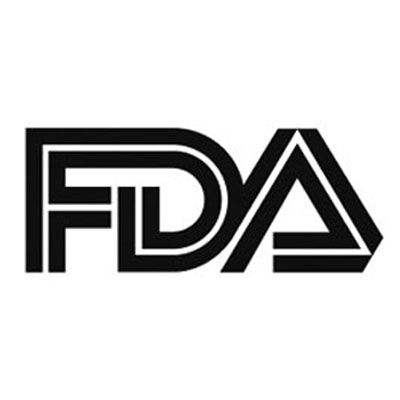Trastuzumab Deruxtecan Receives Orphan Drug Designation from FDA for Gastric Cancer
Fam-trastuzumab deruxtecan-nxki has received an Orphan Drug designation for the treatment of patients with gastric or gastroesophageal junction cancer.

The FDA has granted an Orphan Drug designation to fam-trastuzumab deruxtecan-nxki (Enhertu) for the treatment of patients with gastric or gastroesophageal junction (GEJ) cancer.1
This decision was based on findings from the phase II DESTINY-Gastric01 clinical trial, in which the HER2-directed antibody-drug conjugate demonstrated statistically significant and clinically meaningful improvements in both the objective response rate (ORR) and overall survival (OS) with the study drug compared with physician’s choice of chemotherapy, either irinotecan or paclitaxel.
Trastuzumab deruxtecan demonstrated a safe and tolerable toxicity profile that was consistent with previous findings in the phase I clinical trial. The most common adverse events (AEs) included hematologic and gastrointestinal toxicities, including decrease in neutrophil count, anemia, nausea, and decreased appetite. Drug-related AEs included interstitial lung disease (ILD) and pneumonitis, although the majority of these were grades 1/2, with only 2 of grade 3 and 1 of grade 4 severity. There were also no grade 5 AEs in either the phase I trial or the DESTINY-Gastric01 study.
Full data from the DESTINY-Gastric01 study will be presented during the 2020 American Society of Clinical Oncology Virtual Annual Meeting, which is being held May 29-31, 2020.
The multicenter, open-label study enrolled patients with advanced gastric/GEJ adenocarcinoma who expressed HER2 (IHC3+ or IHC2+/ISH+) and had progressed on at least 2 prior lines of therapy, including trastuzumab (Herceptin), 5-flourouracil, and platinum-based chemotherapy. Overall, 188 patients from Japan and South Korea were randomized 2:1 to receive either trastuzumab deruxtecan at a dose of 6.4 mg/kg every 3 weeks or the physician’s choice of chemotherapy.
The primary end point of the study is ORR as assessed by an independent review committee. The secondary end points included OS, progression-free survival (PFS), duration of response, disease control rate, time to treatment failure, and safety/pharmacokinetics.
In the phase I study, which was published in Lancet Oncology, investigators saw preliminary activity and a manageable safety profile with treatment with trastuzumab deruxtecan in heavily pretreated patients with HER2-positive gastric or GEJ cancer. Overall, 259 patients were treated trastuzumab deruxtecan, 44 of which had HER2-positive disease. Nineteen patients received a dose of 5.4 mg/kg while 25 patients received a dose of 6.4 mg/kg of the study drug. The median duration of treatment was 4.4 months (range, 2.5-8.2).2
Overall, 43.2% of patients (19) achieved an objective response (95% CI, 28.3%-59.0%) after a median follow-up of 5.5 months (range, 2.8-13.1). Objective responses were observed more in the patients who received the lower dose of trastuzumab deruxtecan compared with the higher dose level (19 vs 6 patients). Tumor shrinkage was observed in 80% of patients in the first 6-week postbaseline tumor assessment.
Disease control was observed in 79.5% of patients (n = 13; 95% CI, 64.7%-90.2%). The median time to response was 1.4 months (95% CI, 1.3-1.6), and the responses lasted for a median of 7 months (95% CI, 4.4-16.6). The median PFS was 5.6 months (95% CI, 3.0-8.3), and the median OS was 12.8 months (95% CI, not estimable; range, 1.4-25.4 [with censoring]).
Every patient experienced at least 1 treatment-emergent AE (TEAE) in the study. At least 1 grade 3 or greater TEAE was observed in 28 patients (64%), and 48% were determined to be related to the study drug. At least 1 serious TEAE also occurred in 25% of patients, and of these, 9% were considered drug related. Fourteen percent of patients discontinued treatment due to TEAEs.
The most commonly seen grade 3 or higher TEAEs included anemia (30%), neutrophil decrease (20%), platelet count decrease (18%), and white blood cell decrease (16%) counts. Four cases of pneumonitis were reported, including 3 of grade 2 and 1 of grade 3.
The open-label, dose-escalation study administered the 2 recommended doses of trastuzumab deruxtecan once every 3 weeks until study withdrawal, unacceptable toxicity, or progressive disease. Co-primary end points included the number of patients with AEs and tumor response.
Trastuzumab deruxtecan also received a Breakthrough Therapy Designation for the treatment of patients with HER2-positive unresectable or metastatic gastric or GEJ adenocarcinoma who received at least 2 prior lines of therapy that included trastuzumab. This was one of 3 breakthrough designations for the antibody-drug conjugate.
In Japan, trastuzumab deruxtecan received a Sakigake designation from the Ministry of Health, Labour, and Welfare and a supplemental new drug application was submitted for the potential use of the agent as a treatment for patients with HER2-positive gastric cancer.
References
- Enhertu granted Orphan Drug Designation in gastric cancer [news release]. Tokyo & Basking Ridge, NJ: Daiichi Sankyo Company, Limited & AstraZeneca; May 22, 2020. https://bwnews.pr/2WV9Ec3. Accessed May 22, 2020.
- Shitarak K, Iwata H, Takahashi S, et al. Trastuzumab deruxtecan (DS-8201a) in patients with advanced HER2-positive gastric cancer: a dose-expansion, phase 1 study. Lancet Oncol. 2019;20(6):827-836. doi:10.1016/S1470-2045(19)30088-9